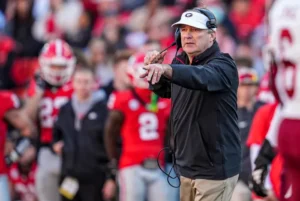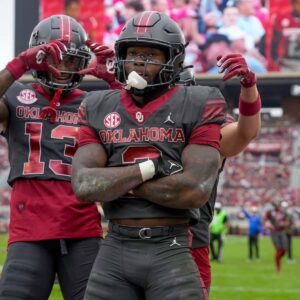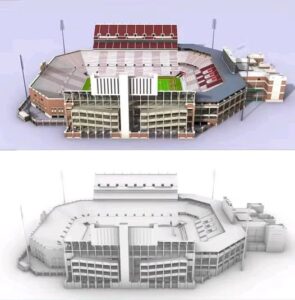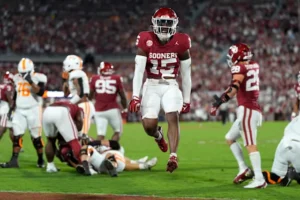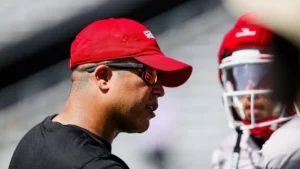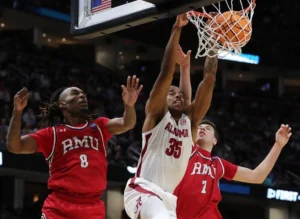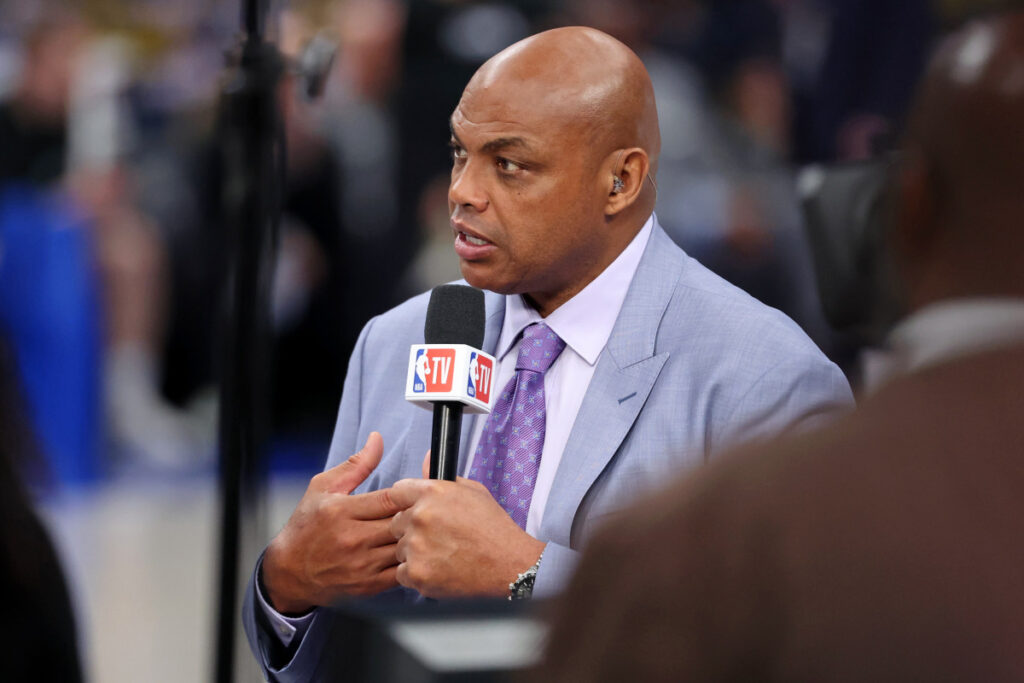
When his Stanley Cup prediction backfired, Charles Barkley was ridiculed.
Charles Barkley, a name synonymous with basketball greatness, is also known for his outspoken personality and sometimes unpredictable takes on matters outside of basketball. His prediction regarding the Stanley Cup in 2001, however, stands as one of those moments that drew significant attention and ridicule, even for someone of his stature. While Barkley was, of course, widely celebrated for his Hall of Fame career as a player, this particular moment made him the subject of widespread mockery, demonstrating that even the most confident and accomplished sports figures can falter when they step outside their comfort zones.
Barkley’s personality, in many ways, is what makes him a beloved and often controversial figure in sports media. His candidness, humor, and unabashed opinions often make for entertaining television and have propelled him into superstardom, especially as a co-host of the popular NBA analysis show Inside the NBA on TNT. His role as a sports pundit has given him a platform to comment on sports beyond basketball, often leading to predictions that range from reasonable to outlandish. This tendency to make bold predictions has made him a fixture in the sports media landscape. However, one prediction, in particular, would come to haunt him years later, as it involved a sport in which he wasn’t quite as well-versed: hockey.
It was in the lead-up to the 2001 Stanley Cup Finals that Charles Barkley made his now-infamous prediction. At the time, the Stanley Cup Finals were set to feature the Colorado Avalanche and the New Jersey Devils, two teams that had been dominant in their respective conferences throughout the regular season. For those familiar with the sport, both teams boasted strong rosters, and the series was expected to be a competitive one. However, Barkley, in his typical brash and confident fashion, decided to make a bold prediction that would soon backfire spectacularly. During a broadcast of Inside the NBA, Barkley declared that he believed the New Jersey Devils would win the Stanley Cup in a sweep. He didn’t just predict a victory for the Devils—he boldly suggested they would sweep the Avalanche in four straight games.
It’s important to understand the context of Barkley’s prediction. At the time, Barkley was known for his larger-than-life personality, and his propensity for making controversial statements was part of his charm. His confidence in his prediction about the Stanley Cup could easily be seen as another example of his trademark bravado. But the fact that it was a prediction about a sport in which Barkley wasn’t particularly known for being an expert made it all the more remarkable—and, in hindsight, misguided.
Barkley’s hockey knowledge was certainly not as expansive as his expertise in basketball, but his decision to make a confident prediction about the Stanley Cup Finals was driven by a combination of bravado and a belief that, much like in basketball, he could read the game and its players well enough to make an accurate forecast. The New Jersey Devils, at the time, were a team known for their defensive style of play, which Barkley believed would give them an edge against the high-powered offense of the Colorado Avalanche. To Barkley, it seemed like a straightforward prediction: the Devils’ defense would stymie the Avalanche’s attack, and they would win decisively.
However, as is often the case with bold predictions, things don’t always play out as expected. The Colorado Avalanche proved to be a formidable opponent, and the Stanley Cup Finals took an unexpected turn. Rather than the predicted sweep by the Devils, the series would be a hard-fought battle that stretched to seven games. The Avalanche, led by the likes of star players such as Joe Sakic, Peter Forsberg, and Patrick Roy, had more than enough firepower to match the Devils’ defense. It became clear that the Colorado Avalanche were not only capable of competing with New Jersey—they were on their way to securing the championship.
As the series unfolded, the Colorado Avalanche came out on top, winning the Stanley Cup in seven games. This stunning turnaround not only dashed Barkley’s prediction but also left him open to widespread ridicule. In the days following the Avalanche’s victory, sports media outlets, as well as fans on social media and various forums, took the opportunity to poke fun at Barkley’s overly confident and inaccurate prediction. It became a widely circulated example of how even the most confident and well-respected analysts can make spectacularly wrong calls, particularly when venturing outside their area of expertise.
The ridicule that followed Barkley’s prediction was not just limited to casual fans. Fellow analysts and sports commentators, particularly those within the world of hockey, were quick to point out Barkley’s blunder. In the often competitive and at times hostile world of sports media, Barkley’s mistake was seized upon by others looking to undermine his credibility. Hockey analysts, who had a much deeper understanding of the game, quickly highlighted the flaws in his prediction and used it as an example of how outsiders can misunderstand the intricacies of a sport they may not fully appreciate. Some even joked that Barkley’s experience as a basketball player didn’t give him any special insight into the world of hockey, and that maybe he should stick to what he knew best.
But perhaps the most telling response to Barkley’s misstep came from his own colleagues at Inside the NBA. The nature of the show is such that its hosts—Barkley included—often engage in playful banter and ribbing, and it wasn’t long before Barkley’s failed prediction became the subject of relentless teasing. His co-hosts, including the ever-quick-witted Shaquille O’Neal and Kenny Smith, had a field day with the debacle. They joked that Barkley’s prediction had as much chance of coming true as his ability to play professional hockey. The lighthearted mockery only added to the public’s perception of Barkley as someone who, despite his status as a basketball icon, could occasionally miss the mark in grand fashion when it came to analyzing other sports.
Despite the ridicule, it’s worth noting that Barkley took it all in stride. Rather than getting defensive or embarrassed about his mistake, he embraced the humor that came with it. Barkley has always been known for his ability to laugh at himself, and in this case, he used the opportunity to further endear himself to fans who appreciated his ability to not take himself too seriously. In the years following the incident, Barkley would often reference the prediction in jest, acknowledging that his foray into hockey analysis was less than successful. His ability to own up to the mistake, rather than double down on his prediction, endeared him to fans even more.
In the end, Barkley’s Stanley Cup prediction remains one of the more amusing moments of his post-basketball career. It serves as a reminder that even the most accomplished sports figures, who are used to being right about so many things, can sometimes misread the game in unexpected ways. It also highlighted the fine line between confidence and hubris, as Barkley’s unshakable belief in his own analysis of the Stanley Cup led to a prediction that was far off the mark.
Moreover, the entire incident underscores the complexities of sports analysis. While Barkley’s bold prediction was certainly a memorable one, it’s important to recognize that predictions—whether about basketball, hockey, or any other sport—are inherently speculative. In many cases, even the most informed analysts can be wrong, and the unpredictability of sports is part of what makes them so exciting to watch. Barkley’s misstep was a humorous reminder that no one, no matter how experienced or successful they may be, has the ability to predict the future with certainty.
Ultimately, Charles Barkley’s failed Stanley Cup prediction became part of his larger-than-life persona, a moment that fans still remember and chuckle about today. It was a rare miscalculation in an otherwise illustrious career of bold and insightful commentary. And though it drew its fair share of ridicule, it also highlighted the importance of humility and the value of not taking oneself too seriously—qualities that Barkley has continued to demonstrate throughout his career, both on and off the basketball court.
